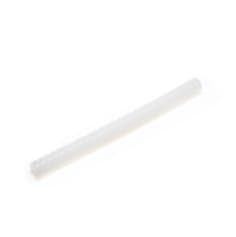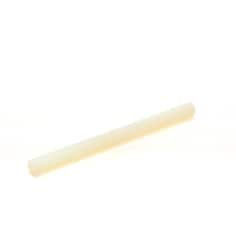3M™ Hot Melt Adhesive 3792LMQ, Transparent, 16 mm x 200 mm, 5 kg
- 3M ID 7000000880
Details
Highlights
- Dries clear for clean appearance
- Open bond time allows for fit adjustment and positioning
- Multi-purpose adhesive works on wood, coated paper and polyolefins
- 3792LM: Low melt version for heat sensitive surfaces such as coated paper and P.O.P displays
- Excellent "Go-to" adhesives for POP display, carton sealing, furniture, upholstery, and woodworking
We developed 3M™ Scotch-Weld™ Hot Melt Adhesive 3792 as a clear adhesive with hot melt and low melt versions that effectively bond heat sensitive materials such as wood and coated paper to furniture and upholstery and other lightweight materials.
Our multi-purpose adhesive features a 40 - 50 second open bond, to allow for positioning and fit adjustment on wood, polyethylene, polypropylene, corrugated boxes, and lightweight substrates on furniture, upholstery and novelties. Its nearly instant bonding property reduces production time for POP assembly, joining, attaching, securing, repairing, potting, panel bonding, wire tacking, bundling, sealing, encapsulating, rigidizing, foam bonding, and packaging. We manufacture 3M Hot Melt Adhesive 3792 with 100% solids, thermoplastic resin for use with either the 3M™ Scotch-Weld™ Hot Melt Applicator LT, LT Quadrack or EC, depending on version. It produces minimal odor when heated, helping to support a comfortable work environment. This thermoplastic adhesive has excellent thermal shock, heat resistance, electrical insulating properties, and is non-corrosive. About Hot Melt Adhesives Hot melt adhesives/hot-glue sticks have a relatively hot melting point that ranges between approximately 250 – 380°F (121 – 196°C), depending on the formulation, and are applied with hot-melt applicators, commonly referred to as hot-glue guns. Hot-melt glues provide a nearly instant bond between many plastics, paper and wood, but when the bond is reheated, some varieties will soften, allowing the bonded surfaces to be separated. The quick-stick nature of hot-melt adhesives speeds up operations in packaging and production. Low melt adhesives/ hot-glue sticks have a relatively low melting point that ranges between approximately 170 – 250°F (76 – 121°C), depending on the formulation, and are applied with low-temperature applicators, commonly referred to as hot-glue guns. Low-melt adhesives are beneficial in that they can be used to bond heat sensitive materials such as foam and a range of plastics. They provide a nearly instant bond but when the bond is reheated, some varieties will soften, allowing the bonded surfaces to be separated. The aggre
 3M™ Hot Melt Adhesive 3792LMQ, Transparent, 16 mm x 200 mm, 5 kg
3M™ Hot Melt Adhesive 3792LMQ, Transparent, 16 mm x 200 mm, 5 kg 3M™ Hot Melt Adhesive 3762LMQ, Beige, 16 mm x 200 mm, 5 kg
3M™ Hot Melt Adhesive 3762LMQ, Beige, 16 mm x 200 mm, 5 kg